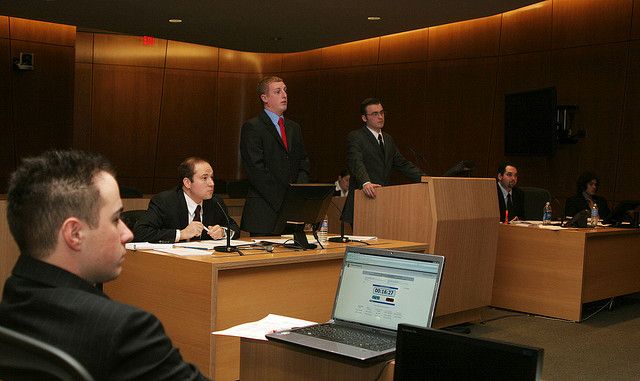Legal Topics

Facing Libel and Slander Cases
The law defines "defamation" as a deliberate attack on someone's reputation or good standing in a community. As an abuse of freedom of speech, this is considered a civil wrong and liable to a suit, which would result in the perpetrator paying a severe fine for their actions.
Every citizen has the right to protect themselves from false accusations or attacks on their character. Here is a quick guide to understanding the law regarding libel and slander, and how you can better protect yourself.
Libel and Slander
Any form of defamation of character shares 4 essential criteria. First, the statement must be published, meaning it was made in view of the public. Secondly, the statement must be harmful, resulting in a loss or damage against the victim. Thirdly, the statement must be false, with the intent of passing as the truth and not merely being a personal opinion. Finally, the statement must be unprivileged, which means it was said outside of a protected environment, like testifying in court.
Defamation comes in two forms: libel and slander. Libel is a harmful statement made in printed media or images; a common example would be an article in a tabloid newspaper. Slander, on the other hand, is a malicious statement spoken aloud, such as through a radio or TV broadcast.
Defenses against Defamation
When facing a possible instance of libel or slander, the main issue that lawyers and judges will examine is whether the statement was made with "actual malice." Malice, in this case, refers to the speaker's intent to cause harm to the person or group they were speaking about. Other key criteria include determining if the statement was made without any serious research into whether or not it was true.
There are also special rules for when libel or slander is directed toward a public figure like a political leader or prominent businessman. The standard for "actual malice" becomes much stronger, putting more pressure on the plaintiff or wronged party to prove that the statement is false and without merit. For the most part, public figures have a much larger profile in the public view than most ordinary citizens, which makes them more common targets of libel and slander.
In the event that someone is wrongly accused of committing libel or slander against another person, then the burden is on them to prove that their statement doesn't met the major criteria for defamation. It may be a case of proving if the statement was in fact or believed to be true, if it was merely an opinion, if the plaintiff gave prior consent, or if no actual injury occurred from the statement being published.
Image by Penn State Law on Flickr
Current Topics
1. Fiscal Agent Vs Fiscal Sponsor: What's The Real Difference?
Nonprofits and community...
2. How to Choose the Best Personal Injury Lawyer in the USA?
A personal injury lawyer...
3. How to Find the Right Attorney and Choose the Best Lawyer
Finding the right attorn...
4. Healthcare Compliance Rules Every Legal Pro Must Know
Here's the thing. Health...
5. AI ChatGPT Tools in Artificial Intelligence for Lawyers
The world of law is evolving at a pac...
6. What Are the Employment Laws Protecting Worker Rights?
In contemporary jobs, it...
7. Financial Resilience Explained for Stability & Success
Money is so cumulative i...
8. What Are Gig Economy Jobs? Legal Rights You Must Know
The way people work has changed drama...
9. Rights & Mediator's Role in Pregnancy Child Support 2025
The first idea that will come to the ...
10. Digital Courtrooms: VR Evidence & Remote Trials in 2025
Once upon a time, courtrooms were all...
